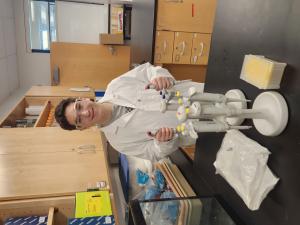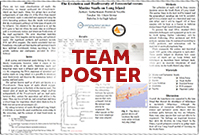

- Program:
- Barcode Long Island
- Year:
- 2022-23
- Research Topic:
- Biodiversity & trade
- Taxonomic Group Studied:
- Multiple - enter below
Project:
Assessing Temporal Variability in the Rhizosphere Microbiome of Spartina alterniflora
- Students:
- Sam Adler, Mr. Rich Lebowitz
- School:
- Long Beach High School, Nassau
- Mentors:
- Richard Lebowitz
Abstract:
S. alterniflora has demonstrated an exceptional tolerance for flooding, anoxic soils, and high salinities. Utilizing this robust planta can provide insight into wetland restoration, particularly brackish wetlands where the salt concentrations are higher than those of a freshwater wetland. This study involves a temporal analysis of the rhizosphere microbiome of S. alterniflora in a brackish pond to understand how the bacteria found in the rhizosphere respond to changes in variables such as temperature, salinity, and pH. DNA will be extracted for January through October triplicate samples using the Qiagen DNeasy Powersoil kit, PCR and gel electrophoresis will be conducted to amplify the DNA, and samples will be sent out for sequencing. Using the DNA Subway Purple Line, the sequences will be ran through a filter, alpha rarefaction curves will be made, and biodiversity plots will be made.

